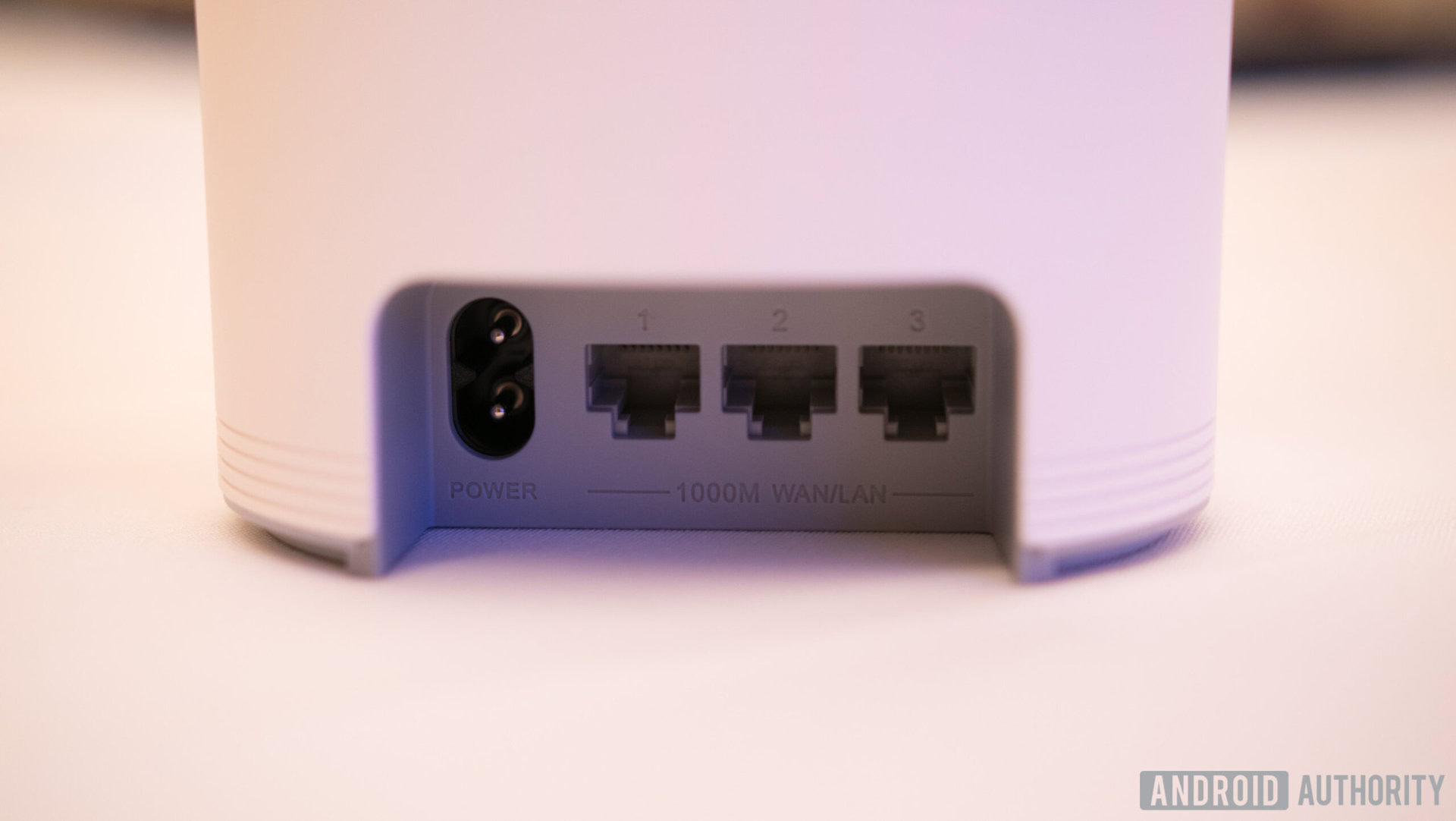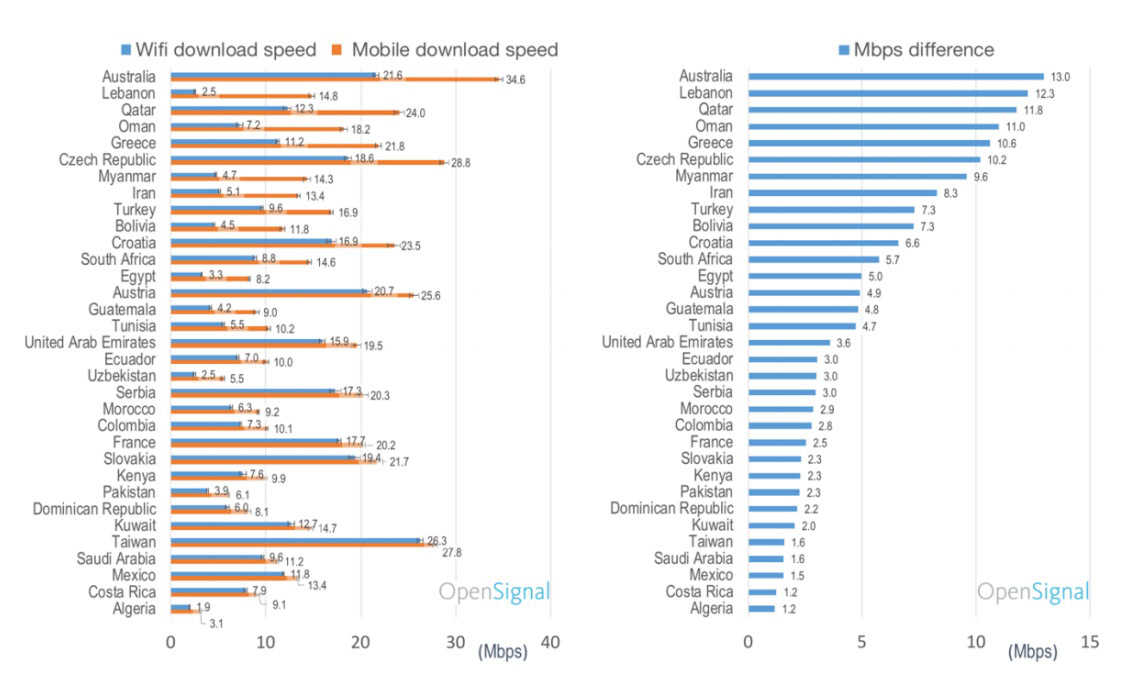Affiliate links on Android Authority may earn us a commission. Learn more.
Average cellular speeds are actually faster than Wi-Fi in these 33 countries

Which is faster: Wi-Fi or cellular data? Most of us probably would answer that Wi-Fi is of course faster, but according to a new study by OpenSignal (PDF), for many countries that isn’t the case.
In 33 countries across Africa, Europe, Latin America, Australia, and the Middle East, average mobile data is faster than the average speed you’d get from a WLAN hotspot. In some cases, the speed benefit is more than 15Mbps. OpenSignal surveyed 80 countries across a range of economic and demographic levels and also found that cellular upload speeds generally correlate with download speeds.
Since the rise of the modern smartphone with Android and iOS, mobile networks and our data usage have both evolved. We’ve seen 3G networks fade away in favor of 4G technology. The devices are now ubiquitous and over half of our collective data usage is for streaming video. Amidst it all, we’ve clung to Wi-Fi networks when we would sometimes be better served by using our cellular network.

Wi-Fi networks are often slower because they depend on fixed network connections that usually have speeds capped, depending on the internet package someone subscribes to. These speed tiers generally don’t exist with cellular data. The technologies behind fixed broadband, including ADSL, VDSL, and DOCSIS, are also varied and sometimes poorly maintained. Because upgrading fixed broadband requires extensive infrastructure developments, it is often easier and more cost-effective to upgrade cellular networks. Instead of laying fiber to each home, fiber only needs to be run to the cellular tower.
Another factor is the Wi-Fi bands used. Instead of including a 5GHz antenna, device manufacturers often only include one for 2.4GHz. This can cause problems when the Wi-Fi bands become overcrowded with too many devices operating on them, especially in apartment complexes where each unit has its own network.
With the deployment of 5G networks, OpenSignal expects cellular networks to outpace Wi-Fi in terms of speed. The abundance of new spectrum will offer more capacity and greater flexibility and will let mobile operators choose the most efficient one for their networks.
Concluding its study, OpenSignal recommended both operators and device manufacturers consider how network speeds impact usage. Users will often choose to use cellular data when they find Wi-Fi performance is poor. Cellular networks need to offer good indoor performance and data should be offloaded to Wi-Fi efficiently so that the experience is not degraded.